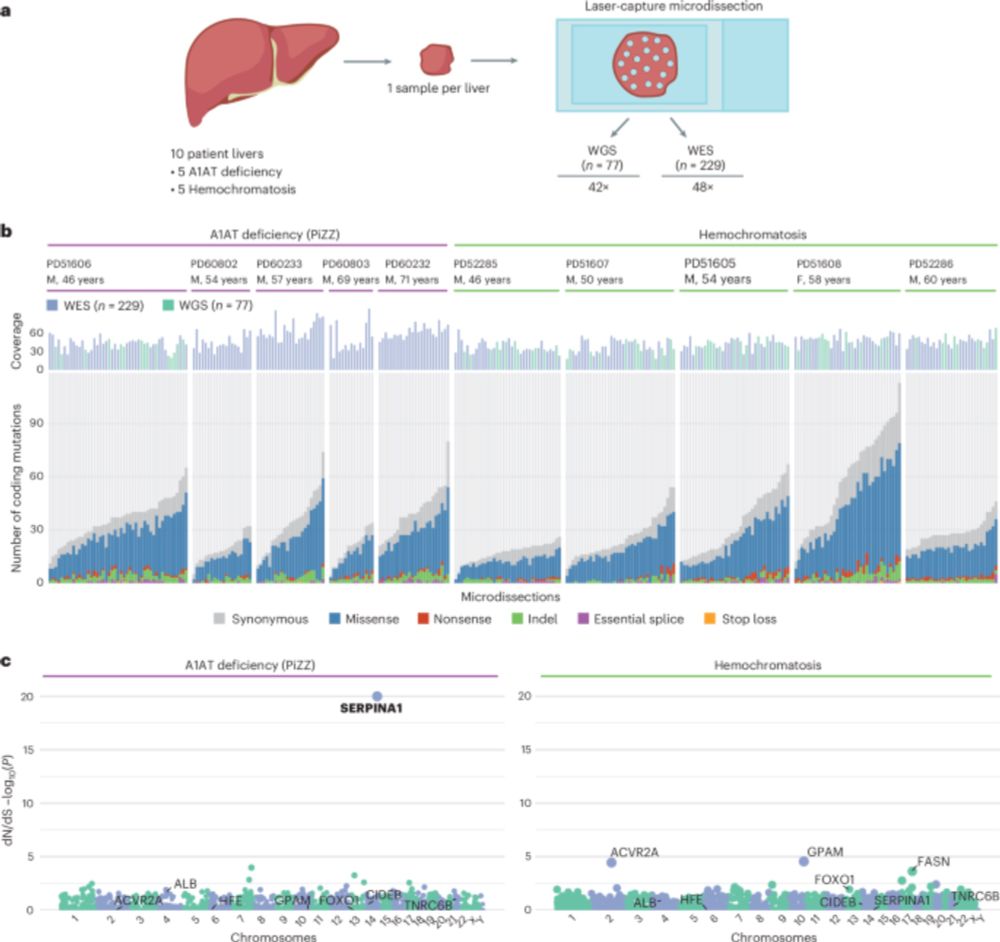

(1) Accurate sequencing of sperm at scale
(2) Positive selection of spermatogenesis driver mutations across the exome
(3) Offspring disease risks from male reproductive aging
[1/n]
www.nature.com/articles/s41...
Some mutations arise after fertilisation 🧬, so early they can appear in both a parent’s body and their germ cells.
By analysing family trio genomes 👪, we built one of the largest catalogues of these “hidden” inherited variants yet.
tinyurl.com/mvns2ytv

Some mutations arise after fertilisation 🧬, so early they can appear in both a parent’s body and their germ cells.
By analysing family trio genomes 👪, we built one of the largest catalogues of these “hidden” inherited variants yet.
tinyurl.com/mvns2ytv
You can check out the exciting list of invited speakers here: coursesandconferences.wellcomeconnectingscience.org/event/mutati...
See you at the Wellcome Genome Campus, on 13–15 April?
Nice one! ;-) #MITS26
You can check out the exciting list of invited speakers here: coursesandconferences.wellcomeconnectingscience.org/event/mutati...
See you at the Wellcome Genome Campus, on 13–15 April?
Nice one! ;-) #MITS26

If you are interested in working at an intersection of Mendelian genomics/Population genetics/Clonal expansions +Cancer genetics/ and of course mutagenesis, please rich out about postdoc in my lab
If you are interested in working at an intersection of Mendelian genomics/Population genetics/Clonal expansions +Cancer genetics/ and of course mutagenesis, please rich out about postdoc in my lab
The reason - mutant sperm stem cells that turn selfish and divide faster than normal 1/
www.newscientist.com/article/2499...

The reason - mutant sperm stem cells that turn selfish and divide faster than normal 1/
www.newscientist.com/article/2499...
(1) Accurate sequencing of sperm at scale
(2) Positive selection of spermatogenesis driver mutations across the exome
(3) Offspring disease risks from male reproductive aging
[1/n]
www.nature.com/articles/s41...

(1) Accurate sequencing of sperm at scale
(2) Positive selection of spermatogenesis driver mutations across the exome
(3) Offspring disease risks from male reproductive aging
[1/n]
www.nature.com/articles/s41...
www.nature.com/articles/s41...

www.nature.com/articles/s41...
www.nature.com/articles/s41...

www.nature.com/articles/s41...
We developed methods to uncover drivers of clonal expansions in sperm (CES) using 55k disease trios & gnomAD SNV data. www.medrxiv.org/content/10.1...

We developed methods to uncover drivers of clonal expansions in sperm (CES) using 55k disease trios & gnomAD SNV data. www.medrxiv.org/content/10.1...

